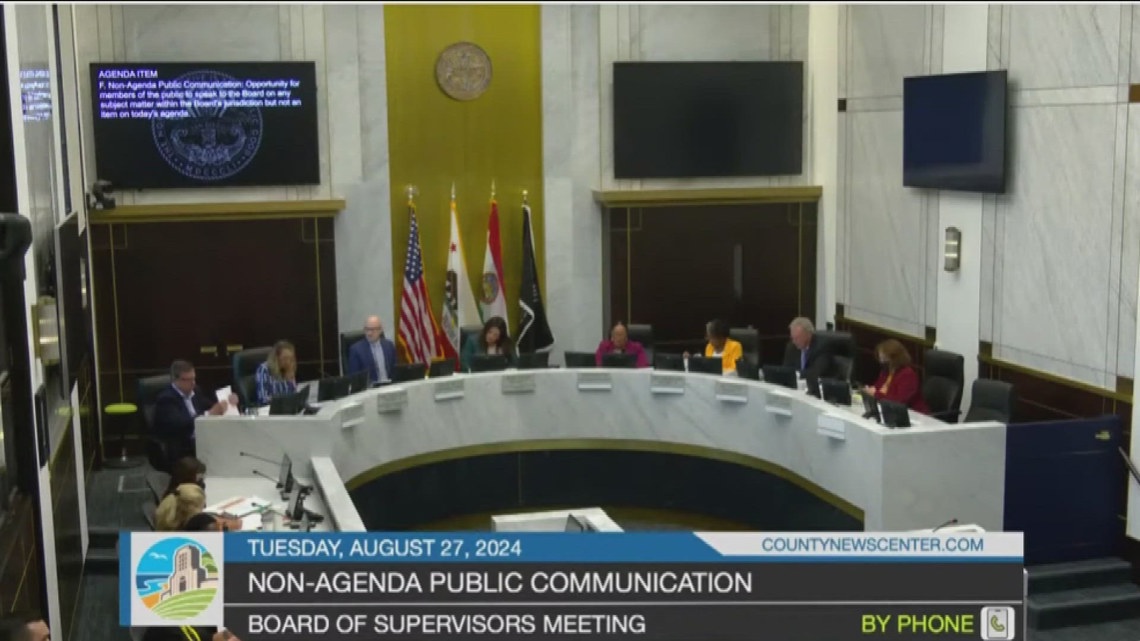
Officials say the bill aims to correct historic injustices against the descendants of formerly enslaved people.
SAN DIEGO — San Diego County Board of Supervisors voted 4-1 last week to support state bills focused on reparations.
County officials say the bills aim to right historic injustices against the descendants of formerly enslaved people.
The county has signaled their support for a package of 14 bills about reparations here in California only.
The bills do not include direct, cash payments to Americans. They are laws at different stages in the legislative process tackling topics including civil rights, education, healthcare and housing.
Kamilah Moore is the chairperson for California’s Reparations Task Force. A first of its kind group looking into how government entities can address system racism.
“Contrary to popular belief, reparations are not a handout. Reparations is about rectifying for generations and generations of exclusionary public policy,” Moore shared.
“Health, political disenfranchisement, school segregation, housing discrimination, stolen labor, hindered opportunities, the list goes on,” Moore continued.
In January, The California Legislative Black Caucus introduced 14 bills based on recommendations in a report by the reparations task force, an 1,100-page document, addressing the lasting effects of slavery and segregation.
The San Diego County Board of Supervisors’ approval of the resolution supporting the package of legislation is their show of support for the 14 bills moving forward.
“50 or 60 years ago, this never would have happened in terms of government entities taking accountability for discriminatory actions,” Moore explained. “It’s not only taking accountability but making a commitment to partner with the community to push forward reparative justice.”
“Think of the GI Bill or the Mother’s Pension Bill or the Homestead act. These are all examples of public policy that excluded African Americans and thus excluded African Americans from wealth building opportunity.”
Monica Montgomery Steppe is the County Supervisor for San Diego County’s District 4. She’s also a member of the state’s Reparations Task Force.
“I’m confident that the more we talk about it, the more people will have an understanding of what it (reparations) truly is,” Montgomery Steppe added.
Some of the bills moving forward in California’s legislature include: a bill where California recognizes and apologies for harm caused, bills that tackle educational support and financial aid for students, another bill allows medical recipients to receive certain food as a benefit, and another restores property taken by eminent domain among other reasons.
“Some land was taken (from affected San Diegans) for other use. We have some examples of that in San Diego so I’m looking forward to how the county will implement some of these laws that have been passed at the state level. We have a lot of work to do.”
Supervisor Joel Anderson was the only no vote. In a statement to CBS 8, Anderson said:
“After speaking with many constituents and receiving their input, I could not support all 14 different pieces of legislation contained in the Reparations Legislative Package. I respectfully asked to bifurcate the vote so that I could show support for the non-controversial items that have broad support, but the author refused to consider my request and instead went with an all or nothing approach. I had hoped to demonstrate the support for the areas where we agree, but I will always vote to represent my constituents to the best of my ability.”
Montgomery Steppe says she knows there is hesitation whenever the idea of reparations comes up, but she says understanding is needed to move forward.
“I’m just asking folks to have an open heart and mind when it comes to this conversation. It’s an important conversation. We need to have it. It impacts everyone. And it requires everyone to be open to the conversation, whether we agree or not,” Montgomery Steppe concluded.
WATCH RELATED: Reparations task force votes to repay African Americans


